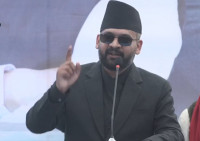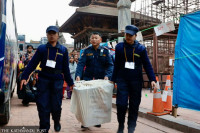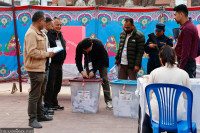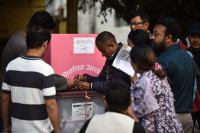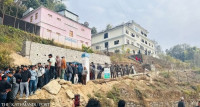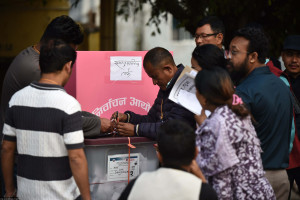National
Oli government issues ordinance on Constitutional Council Act amid crisis in ruling party
The ordinance follows postponement of a Constitutional Council meeting earlier in the day after the Speaker refused to participate.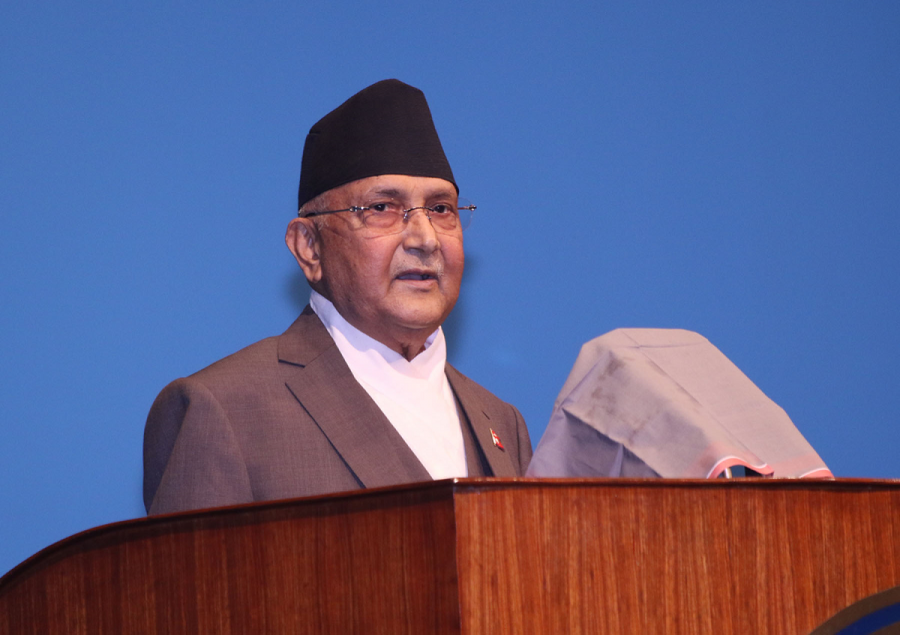
Post Report
The government has issued an ordinance to amend the Constitutional Council Act (Functions, Duties and Procedures) 2010.
President Bidya Devi Bhandari on Tuesday afternoon promulgated the ordinance as per the recommendation of the Council of Ministers.
The Office of the President said on Tuesday that President Bidya Devi Bhandari has promulgated an ordinance on first amendment to Constitutional Council Act (Functions, Duties and Procedures) as per the recommendation of the Council of Ministers pursuant to Article 114 (1) of the constitution.
“The ordinance states that the majority of the Council members can hold the meeting,” said Bhesh Raj Adhikary, chief personal secretary of the President.
The ordinance follows postponement of a meeting of the Constitutional Council on Tuesday following Speaker Agni Sapkota’s refusal to participate.
The House Speaker is one of the members in the Constitutional Council, headed by the prime minister, which makes recommendations for key appointments including in constitutional bodies, judiciary and foreign missions.
“The Speaker could not attend the Constitutional Council meeting because there was a lack of preparations and homework,” said Shreedhar Neupane, press advisor to Speaker Sapkota. “Also there was no coordination on the part of the [Council] chairman.”
As per the provisions of Constitutional Council Act, five of the six members must be present for the meeting to convene.
The chief justice, Speaker, Deputy Speaker, National Assembly chair and leader of the main opposition are the members of the Constitutional Council.
Since there is no deputy Speaker, absence of any of the members means no meeting of the Council.
Sunday's meeting of the Council also could not take place after opposition leader Sher Bahadur Deuba expressed his inability to attend, given his party's mass protests against the government the following day. Speaker Sapkota was also absent in Sunday's meeting, saying he had prior engagements to discuss issues related to the federal parliament.
The decision of Sapkota, who was elected Speaker in January following a long-drawn tug-of-war between ruling party chairs KP Sharma Oli and Pushpa Kamal Dahal, to skip the meeting is just an indication of how the intra-party conflict in the Nepal Communist Party is affecting the Constitutional Council, party insiders say.
Sapkota, a former Maoist leader, is a long time ally of Dahal.
The ruling Nepal Communist Party has been mired in a crisis for months now with chairs Oli and Dahal locked into a battle.
The faction led by Dahal, backed by senior leaders Madhav Nepal, Jhala Nath Khanal, Bamdev Gautam and Narayan Kaji Shrestha, has accused Oli of not abiding by party decisions and demanded that the latter step down.
Oli and Dahal have also levelled allegations against each other in writing.
Dahal had expressed his discontent at Oli’s move of calling the Council meeting on Sunday also. The last meeting of the Council was held in November last year.
Earlier in April also the Oli administration had issued an ordinance on Constitutional Council Act (Functions, Duties and Procedures) along with another ordinance on Political Parties Act 2002. However, the government was forced to rescind both the ordinances within five days after massive criticism.





 15.67°C Kathmandu
15.67°C Kathmandu